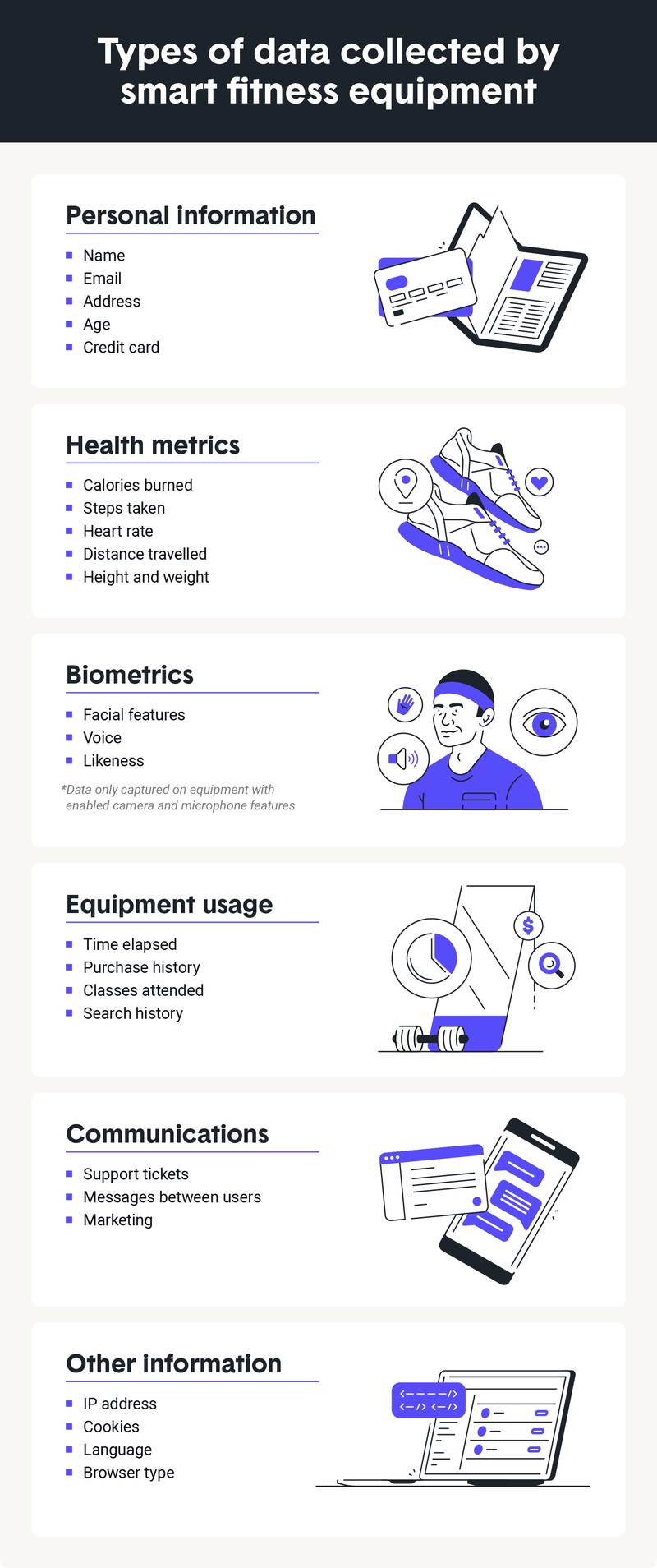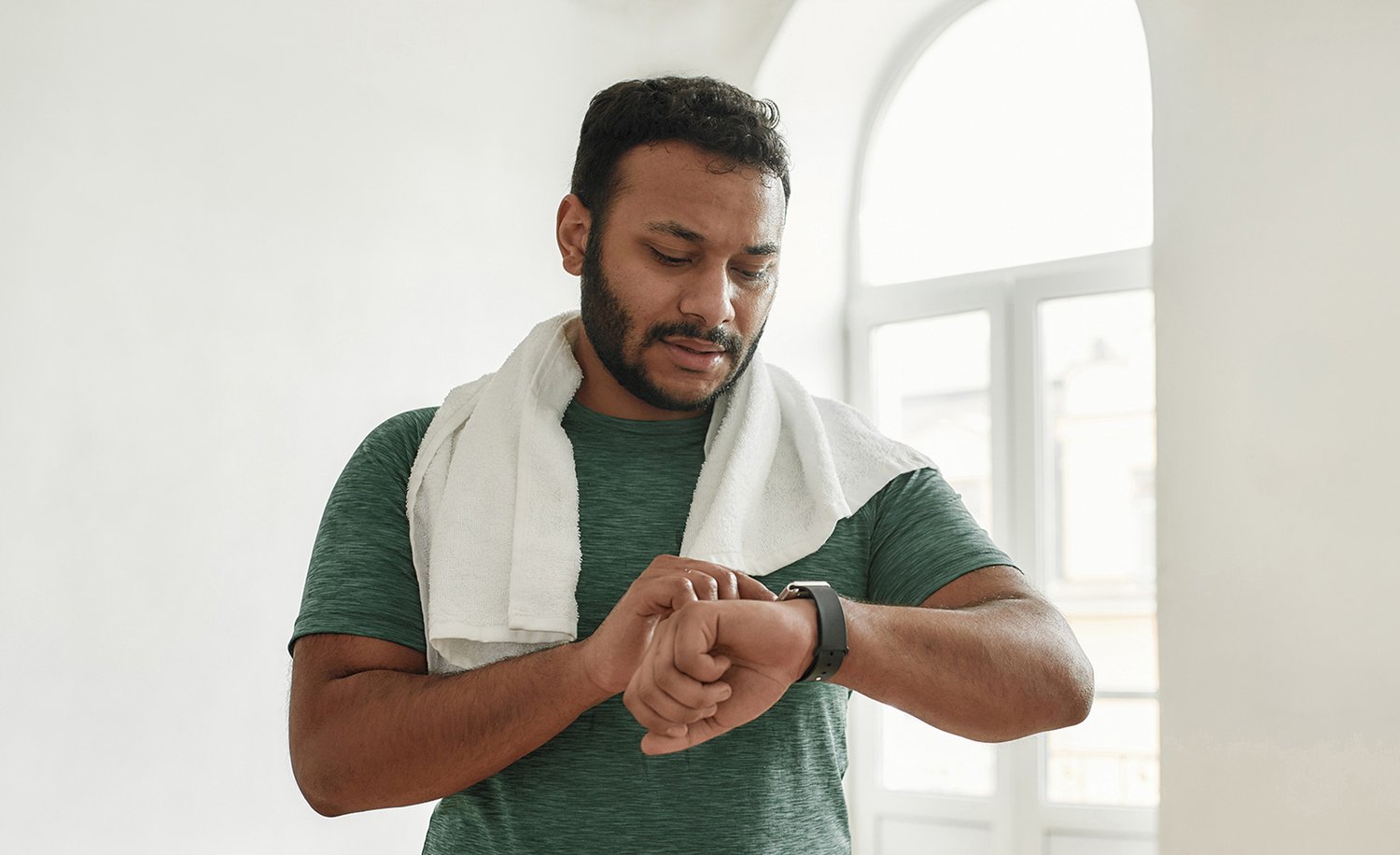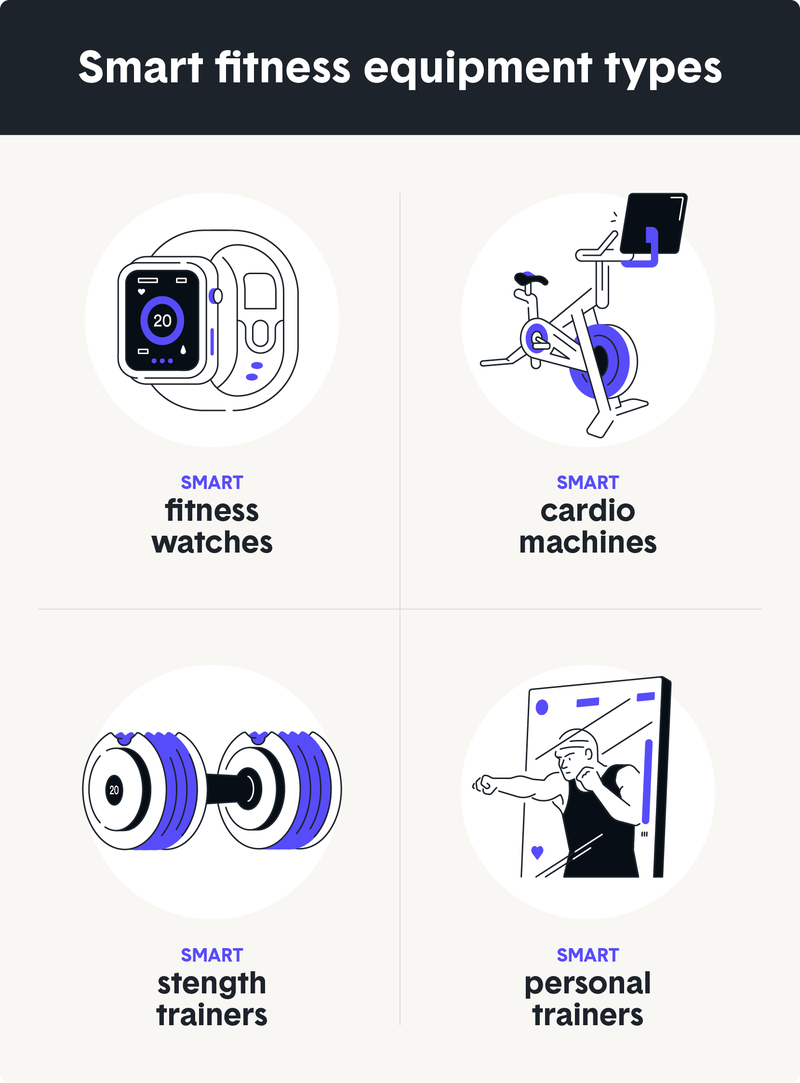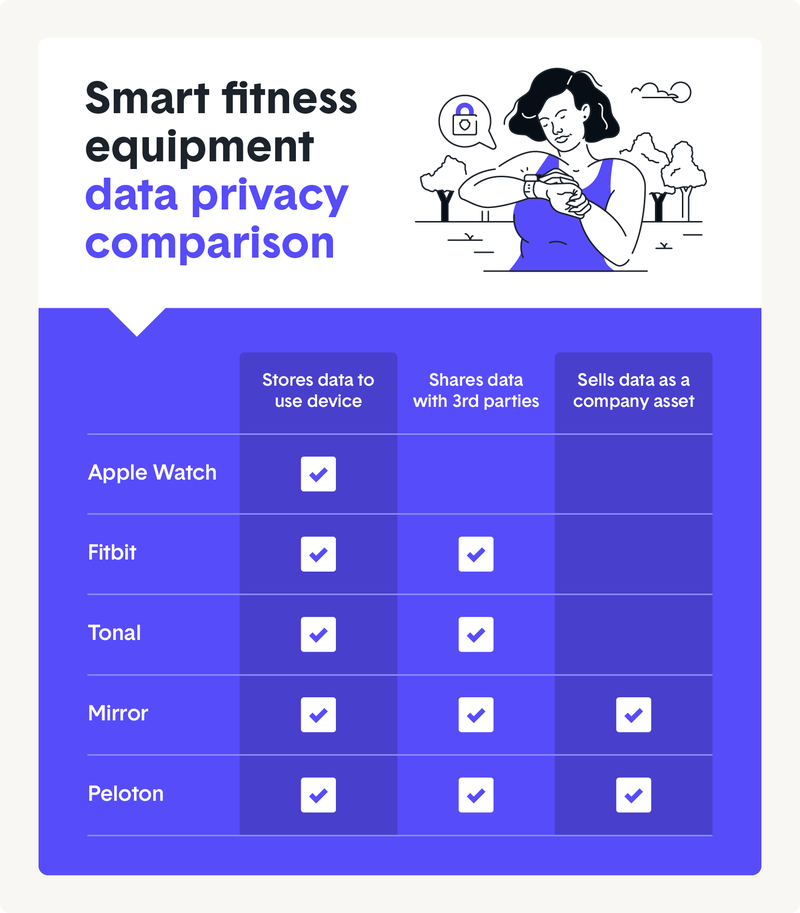What data does your smart fitness equipment collect?
With built-in functions that track your workouts, smart fitness equipment stores data about you to make personalized exercise recommendations. The data your devices collect can include health metrics, personal details, location, equipment usage and other information. See the five major categories below for a breakdown of what your equipment knows about you.

Personal information
You typically share personal information about yourself to gain access to smart fitness equipment. For example, you sign up for an account with your name, contact information, age, location, credit card information and perhaps even a picture of yourself.
Providing some personal details allows the equipment or service to associate other data with your personal profile. You can control what personal details you offer, except for certain instances when information like your name and email address are typically required.
Health metrics
Health metrics are a standard type of data that is collected by smart fitness equipment, and you might want to provide this information to your device so it can help you set and reach your exercise goals. Most devices collect metrics like calories burned, steps taken, heart rate, distance traveled, height and weight.
It's important to note that health information stored on smart fitness equipment is not protected by federal legislation like HIPAA, because most companies don’t count as a covered entity or related business associate.
Biometrics
Did you know that some equipment also collects biometric data from you? Biometric data is any type of biological identifier, like voice or facial features, that can be used to identify an individual or grant access to data or systems.
Through camera and microphone features that you enable, smart fitness equipment can capture and identify your voice, facial features and general likeness. If that is something you don’t want your equipment to know, make sure you choose not to engage those features.
Usage information
Your devices also track how much you use the equipment. This includes how long you use the equipment, frequented locations, the content you search for, the classes you attend, when you log on and which devices are associated with your account. Your purchase and product browsing history are also recorded as well.
Communications
Whenever you communicate with the company through your account, they are probably tracking any and all communications between you and their employees. This is usually for general record keeping/administrative purposes and to monitor things like customer support or sales.
Other data
Smart fitness equipment can also passively collect information about your cyberlife. Information from internet systems like your IP address, cookies, browser type, language and operating systems are all up for grabs. This can leave you and your home vulnerable to cybersecurity risks. Be wary of connecting your device to social media or other applications, as this allows the device to access and share data with the other platform.






